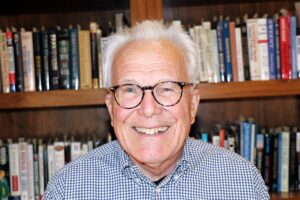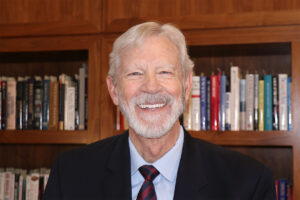Topic: Nuclear power generation

Interview of Jim Haines, November 2, 2023
Interviewed by Rex Buchanan and Mike Lennen
In this interview, Jim Haines describes his long career in the electric utility industry in Kansas during a tumultuous time. He talks about changes in the energy marketplace and in regulations regarding fuel types, safety, and the environment. He also identifies changes that enabled utilities to achieve economies of scale through mergers and acquisitions. Haines talks about the difficult years during which Wolf Creek, Kansas' only nuclear power plant, was under construction, including the public resistance to the plant and the push-back at many levels as construction costs escalated. In this discussion, Haines places the construction Show Moreand initial operation of Wolf Creek in the specific context of Kansas as well as the general context of the U.S. nuclear power industry of the 1980s. Show Less

Interview of Earl Watkins, December 19, 2023
Interviewed by Rex Buchanan and Mike Lennen
Earl Watkins recalls his years of work with Sunflower Electric Power Corporation, a generation and transmission (G&T) cooperative headquartered in Hays, KS. Watkins describes navigating between requirements to provide power to member-owners and requirements of lenders, regulators, and other policymakers. He paints a picture of the unique position of a G&T cooperative in an industry dominated by large investor-owned utilities serving primarily densely populated areas. He also reflects how the co-op business model serves well a sparsely populated portion of Kansas where self-reliance is an important element of the Show Moreregional culture. Show Less

Interview of Wes Jackson, March 5, 2024
Interviewed by Rex Buchanan
In this reflective interview, Wes Jackson recalls the influences on his thinking and his work in the field of environmental science and research. His thinking was embodied in the Land Institute which he co-founded in the mid-1970s after leaving academia. That perspective is firmly based on the connections between science, sociology, political science, religion, and literature that bring them all into one rather than separate silos. That all-encompassing view, using the prairie as a model, informs his thinking about sustainability, broadly writ, that is multi-fascited and based on an appreciation of "outghtness" -- doing things the Show Moreway they ought to be done. Show Less
